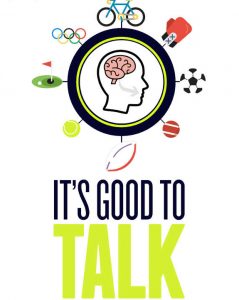Learn how Stevie Ward copes with depression
Learn how Stevie Ward copes with depression
Share
 Stevie Ward, 23 in November, is a rugby league player for Leeds Rhinos. In 2014 he opened up about suffering from depression. He has since responded by launching his own online mental health magazine, Mantality, and has recovered his form on the pitch, winning an England call-up.
Stevie Ward, 23 in November, is a rugby league player for Leeds Rhinos. In 2014 he opened up about suffering from depression. He has since responded by launching his own online mental health magazine, Mantality, and has recovered his form on the pitch, winning an England call-up.
“After my injury, I had a spell where I wasn’t playing well,” says Stevie Ward. “I struggled to cope – I wasn’t able to do what I enjoy most, and I wasn’t in a great place. I suffered. I had a lack of self value, of self esteem, and I wasn’t getting enjoyment from the usual things in life.”
Ward is the sort of person that many might look at and think: “you’ve got it all – how can you be depressed?” A young, fit professional rugby league player for Leeds Rhinos, he was leading the kind of successful life that many people would aspire to. But delve into the world of mental health, and you soon realise that the modern tendency to equate success or fame with happiness is ridiculous – as the suicides of the likes of Robin Williams or Gary Speed perfectly illustrate.
While circumstantial problems, life difficulties and anxieties about
employment can trigger the condition – anyone can be afflicted with depression, whether they’re rich or poor, a superstar or a high-flying CEO, super fit or a couch potato.
Sports people, in fact, can be especially vulnerable: Dame Kelly Holmes, Ian Thorpe, Stan Collymore, Freddie Flintoff, Victoria Pendleton, Neil Lennon and Marcus Trescothick are among those who’ve admitted to struggles. The quest for perfection can lead to self-criticism; losses or injury can lead to a sense of failure; retirement can prompt emptiness. “Every choice I’d made in life was to be a rugby player – and I got my identity took away from me for a while,” says Ward.
Among the public meanwhile, one in four people in the UK experience a mental health problem each year, according to Mind. Woman are marginally more susceptible (21% of women and 16% of men have reported suffering with depression) – although worrying data shows suicide is the biggest killer between men aged 20 to 45, and that 42% have considered taking their lives. This suggests that men often suffer in silence rather than report their woes.
The ONS reported in September 2016 that depression levels have risen 1%, and some suggest that financial difficulties and relationship breakdowns caused by hard economic times could be to blame, as well as the ‘always on’ culture that has developed thanks to social networking.
“It’s important to acknowledge that there’s no single cause, but factors such as lifestyle, stressful events like financial difficulties or a relationship breakdown could increase the likelihood of someone having problems,” says Nia Charpentier from the charity Rethink Mental Health.
The festive season can often be especially difficult. Tiredness, family obligations, over-spending, eating and drinking – as well as the general feeling that you’re being “forced” to have a good time, can all contribute to the Christmas blues.
It isn’t helped by social media. “Everything looks perfect on Instagram, doesn’t it?” says Ward. “You can be putting forward a front, something you’re not, and it’s easy to think everyone else is having a great life online. But everyone has struggles.”
So what to do if you find yourself suffering? Just as depression and anxiety manifest themselves in different ways, there are no hard rules. Medication may work well for one person, but might make another feel worse.
The first step should always be talking: seeing your GP, who you can speak to confidentially, is wise. They won’t always point you towards medication: the health service can also provide talk therapy and other options.
Helplines are also a great way to find guidance. The single reason that more men commit suicide – according to Jane Powell, the CEO of the Campaign Against Living Miserably (CALM) – is that women feel less stigma when it comes to discussing mental issues. “Men often don’t feel like they have permission to look for help,” she claims.
For both genders, however, this problem needs to be addressed. The simple act of chatting – whether it’s a friend or relative, or a helpline like the Samaritans, CALM, Anxiety UK, Mind, Sane and Rethink Mental Illness. “You have to talk,” says Ward. “I had a good rapport with my doctor, so that’s the way I went, but find what works for you.”
There are many other routes that can be investigated, too. Cognitive Behavioural Therapy can help change patterns of negative thinking, while targeted exercise can provide feel-good endorphins and a distraction from problems.
As for Christmas itself, managing expectations are key. Don’t get obsessed with what Christmas holidays ‘should’ be like. Give yourself a break and don’t force yourself to do anything you don’t fancy. Take time to stay in touch with your support network if you’re feeling down, and do something different if you can’t face a “traditional” celebration. Many find that volunteering helps: helping out at a soup kitchen or foodbank can put personal issues in perspective.
The good news is that with the right mixture of help, most depressed or anxious people can find their way back to feeling healthy again. Don’t suffer in silence.
















FOLLOW BESTFIT